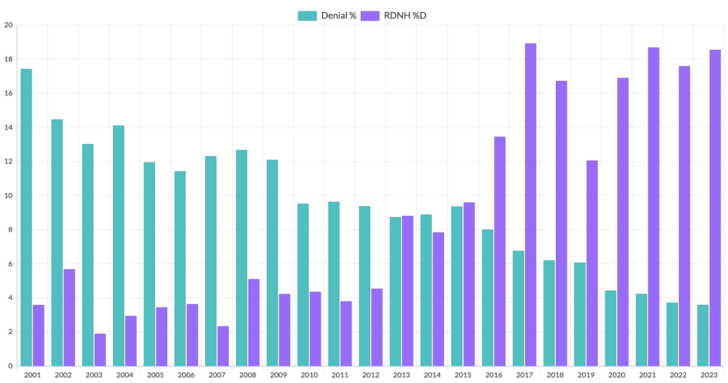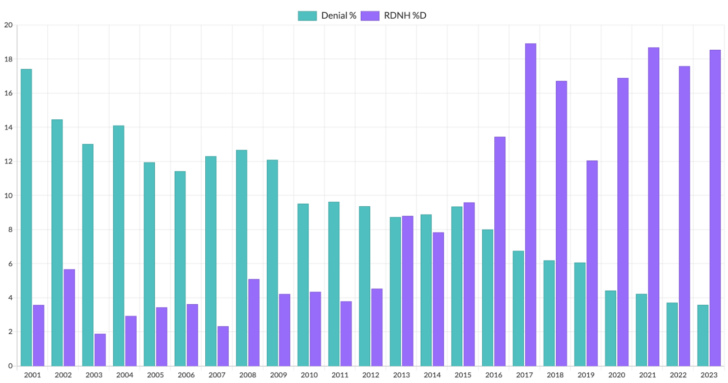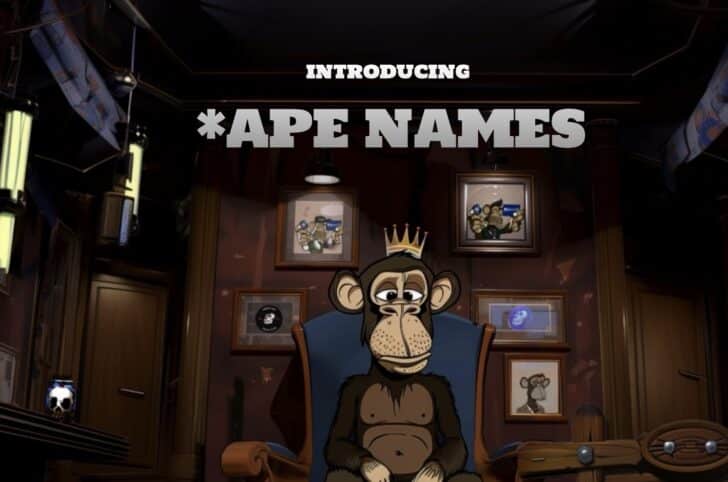Nearly one in five of denied complaints was reverse domain name hijacking.

The number of cybersquatting cases filed under the Uniform Domain Name Dispute Resolution Policy (UDRP) in 2023 hit a record. So did the number of cases filed in bad faith, commonly known as reverse domain name hijacking.
Attorney John Berryhill collated the numbers for last year at World Intellectual Property Organization (WIPO) and Forum, the two largest UDRP providers, and found that 49 disputes resulted in a reverse domain name hijacking finding. (Others certainly should have been found that way but weren’t.)
The percentage of cases found in favor of domain registrants has been shrinking. At the same time, reverse domain name hijacking findings have been increasing. This led to nearly one out of every five denials being reverse domain name hijacking.
There are a couple of takeaways.
First, the denial rate for cases is decreasing, which is a good thing in context. In a perfect world, 100% of cases would be won because cases are only filed in clear-cut cybersquatting cases, which is what UDRP was designed to resolve.
Second, in those cases that are denied, there are more egregious cases being filed. I think some of the increase in reverse domain name hijacking can also be chalked up to better panelist education about the unnecessary cost that frivolous UDRP filings create for domain name owners.
Post link: Reverse domain name hijacking cases hit record high in 2023
© DomainNameWire.com 2023. This is copyrighted content. Domain Name Wire full-text RSS feeds are made available for personal use only, and may not be published on any site without permission. If you see this message on a website, contact editor (at) domainnamewire.com. Latest domain news at DNW.com: Domain Name Wire.



